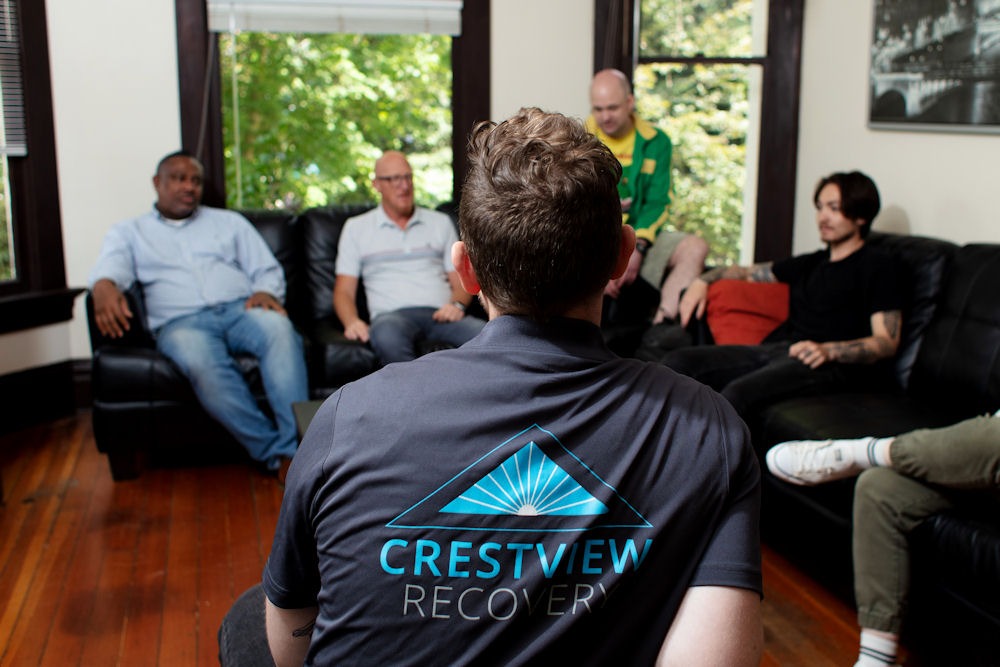When considering entering a rehab program, one of the most common questions that arises is: Can you have a phone in rehab? The answer is not as straightforward as a simple yes or no. Policies regarding phone use in addiction treatment facilities vary depending on the program, the type of treatment being offered, and the individual’s progress in their recovery journey. While some facilities allow limited phone access, others enforce strict rules or even complete bans on personal electronics during treatment.
This post explores the reasoning behind these rules, the importance of limited phone use in recovery, and the ways patients can stay connected with loved ones throughout the process.
Understanding Cell Phone Use in Rehab: Why Restrictions Exist
Rehab centers often impose cell phone rules for several key reasons. The first priority of these facilities is to create a focused environment where patients can concentrate on their recovery. For many individuals, entering rehab is a critical step toward overcoming addiction, and distractions like cell phones can interfere with the healing process. Phone use can lead to unnecessary stress, trigger cravings, or cause disruptions to the therapeutic routines that are essential to long-term recovery.
Additionally, rehab facilities strive to protect the privacy and confidentiality of all patients. Allowing unrestricted cell phone use can inadvertently expose others in the program to breaches of confidentiality. By limiting phone access, rehab centers are better able to maintain a secure and supportive environment where patients feel safe sharing their struggles and challenges without fear of judgment or outside interference.
Another significant concern with cell phones in rehab is the risk of exposure to negative influences. Social media, in particular, can be a source of stress or anxiety for individuals in recovery. Friends or acquaintances who may not fully understand the gravity of addiction might post triggering content or encourage unhealthy behaviors. For this reason, many rehab centers take a cautious approach when it comes to permitting phone use.
Blackout Periods: The Importance of Disconnecting

One common practice among rehab centers is the implementation of a “blackout period.” This is a designated period at the beginning of the treatment program during which patients are not allowed to use their phones or have any contact with the outside world. These blackout periods typically last anywhere from 7 to 30 days, depending on the facility and the individual treatment plan. During this time, patients do not have cell phone privileges, which are gradually restored as they progress in their treatment.
The rationale behind blackout periods is rooted in the idea that early recovery is a delicate time. During the initial stages of treatment, patients may experience withdrawal symptoms, mood swings, and heightened emotional sensitivity. The goal of the blackout period is to minimize distractions and allow individuals to fully immerse themselves in the recovery process. By limiting external communication, patients can focus entirely on themselves and the work they need to do to break free from addiction.
A blackout period can also help establish healthy boundaries. Many individuals in recovery have complicated relationships with family members, friends, or significant others. Unresolved conflicts or emotional attachments may hinder progress in treatment. By temporarily cutting off communication with the outside world, patients are encouraged to reflect on these relationships and develop new coping strategies that promote emotional health and sobriety.
While some may view the blackout period as restrictive or isolating, it is often a crucial part of the treatment process. It allows individuals to reset their priorities and commit to their recovery without the pressure of external expectations or influences.
Contacting Loved Ones: Balancing Support with Boundaries
Staying connected with loved ones during rehab is important, but it must be approached with care. Many rehab facilities allow patients to contact family members or close friends after the blackout period has ended. In some cases, limited cell phone use may be granted for specific purposes, such as arranging aftercare plans or maintaining contact with legal or medical professionals. However, the focus remains on recovery, and phone privileges are typically closely monitored.
Communication with family and friends can play a vital role in the healing process. Positive support systems help reinforce the individual’s commitment to sobriety and offer encouragement during challenging moments. Rehab programs often incorporate family therapy sessions or visitation hours to help repair and strengthen relationships that may have been damaged by addiction.
At the same time, rehab centers emphasize the importance of setting healthy boundaries. Patients are encouraged to limit contact with individuals who may contribute to their addiction or trigger negative emotions. During treatment, it’s essential to foster an environment of positivity and support, and some relationships may need to be reevaluated if they prove to be detrimental to the patient’s well-being.
For those whose relationships with loved ones have been strained due to addiction, rehab offers an opportunity for healing and reconciliation. Family counseling or mediation can help address unresolved issues, and regular, controlled communication can facilitate rebuilding trust over time.
Rehab Facilities Policies: A Case-by-Case Approach
It’s important to note that rehab facilities vary widely in their policies regarding phone use. Some centers allow patients to keep their phones, albeit with strict time limits and supervision. Others may allow phone use only during specific hours or after patients have reached certain milestones in their recovery. For example, patients might earn phone privileges as part of a reward system based on their progress in treatment.
On the other hand, some drug rehab centers may prohibit phones entirely for the duration of the stay, particularly in more intensive programs such as inpatient detox or residential treatment. These facilities believe that a complete separation from the outside world is necessary to create a therapeutic atmosphere where recovery can flourish.
At Crestview Recovery, we tailor our approach to each patient’s needs, evaluating factors such as the individual’s progress, personal triggers, and support systems outside of rehab. For some patients, maintaining limited phone contact may be beneficial, while others may need a more structured, distraction-free environment.
Patients should always consult with the rehab facility to understand the specific rules and expectations surrounding phone use. It’s also helpful to keep in mind that these rules are in place to promote the best possible outcomes in recovery, even if they seem restrictive at first glance.
Why Some Rehab Centers Are More Strict Than Others
The varying levels of strictness regarding phone use in rehab can often be attributed to the type of treatment being offered for drug or alcohol addiction. Inpatient or residential programs, where individuals live at the facility full-time, tend to have stricter rules compared to outpatient programs. In these settings, patients are more intensively monitored, and the focus is on providing a structured, distraction-free environment.
In contrast, outpatient programs may be more lenient with phone use, as patients are living at home and attending treatment during the day. These individuals are often better equipped to manage external distractions and may already have established boundaries regarding their phone use. Outpatient programs may only require patients to turn off their phones during therapy sessions or group meetings, allowing them more freedom during non-treatment hours.
The philosophy behind stricter rules is simple: Rehab centers are places of healing, and excessive phone use can undermine that process. Constant access to phones can pull individuals away from the internal work they need to do, whether it’s processing emotions, reflecting on past behaviors, or building healthier coping mechanisms.
Managing Triggers and Anxiety
Managing triggers and anxiety is a crucial aspect of the recovery process. Triggers can be anything that causes a person to feel the urge to use drugs or alcohol, and they can be especially challenging during the early stages of treatment. Anxiety can also be a significant obstacle, as it can make it difficult for individuals to focus on their recovery.
To help patients navigate these challenges, treatment centers often provide a variety of tools and techniques designed to manage triggers and anxiety effectively. One such method is cognitive-behavioral therapy (CBT), which helps individuals identify and change negative thought patterns and behaviors that contribute to their addiction. By recognizing these patterns, patients can develop healthier coping mechanisms and reduce the risk of relapse.
Another valuable technique is mindfulness-based stress reduction (MBSR). This approach encourages individuals to develop greater awareness of their thoughts and feelings, allowing them to manage stress and anxiety in a healthy way. Through practices like meditation and deep breathing exercises, patients can learn to stay grounded and present, even in the face of challenging emotions.
Support groups also play a vital role in managing triggers and anxiety. These groups provide a sense of community and connection, offering a safe space for individuals to share their experiences and receive encouragement from others who understand their struggles. The camaraderie and mutual support found in these groups can be incredibly empowering and motivating.
In some cases, medication may be prescribed to help manage anxiety and other symptoms associated with addiction. Under the guidance of medical professionals, these medications can provide relief and stability, allowing patients to focus more fully on their recovery journey.
By equipping patients with these tools and techniques, treatment centers can help individuals manage triggers and anxiety, paving the way for a successful and sustainable recovery.
The Role of Technology in Recovery
Despite the potential distractions that electronic devices can introduce, technology also has its place in the recovery process. In some rehab programs, phones or computers are allowed after the initial stages of treatment to help individuals transition back into their daily lives. Online resources, recovery apps, and virtual support groups can be valuable tools for maintaining sobriety and staying connected with a recovery community.
For example, many individuals in recovery use apps to track their progress, journal their thoughts, or connect with others going through similar experiences. In the digital age, recovery doesn’t have to be an isolated journey, and carefully monitored phone use can enhance a person’s support system and access to recovery resources.
Preparing for Rehab
Preparing for rehab can be a daunting task, but it’s an important step in the recovery process. Taking the time to prepare can help ease the transition and set the stage for a positive treatment experience. Here are some key considerations to keep in mind:
First, research different treatment centers and programs to find one that meets your specific needs. Look for facilities that offer the type of care you’re seeking, whether it’s inpatient, outpatient, or a specialized program for drug and alcohol addiction. Reading reviews, speaking with admissions counselors, and seeking recommendations from healthcare professionals can help you make an informed decision.
Next, pack accordingly for your stay. Comfortable clothing is essential, as you’ll want to feel at ease during your time in rehab. Additionally, bring any personal items that may provide comfort or support, such as a journal, family photos, or a favorite book. However, be sure to check with the treatment center for any specific packing guidelines or restrictions.
Notify loved ones of your decision to seek treatment and let them know how they can support you during this time. Open communication with family and friends can provide a strong support network, which is invaluable during the recovery process. They can offer encouragement, understanding, and practical assistance as you embark on this journey.
Finally, plan for aftercare by researching support groups and other resources that can help you maintain your sobriety after treatment. Aftercare planning is a critical component of long-term recovery, as it ensures you have the necessary support and resources in place once you leave the treatment facility. Look into local support groups, counseling services, and sober living arrangements to create a comprehensive aftercare plan.
By taking these steps, individuals can prepare themselves for the recovery process and set themselves up for success. With the right preparation and support, the journey to overcoming drug and alcohol addiction can be a transformative and empowering experience.
Finding the Right Balance

So, can you have a phone in rehab? The answer depends on the facility, the program, and the individual. While some rehab centers allow limited phone use, others enforce stricter rules to ensure that recovery remains the top priority. Blackout periods, limited contact with loved ones, and the establishment of healthy boundaries are all designed to create a therapeutic environment that fosters healing and growth.
In the end, the goal of any rehab program is to help individuals overcome substance abuse and equip them with the tools they need for long-term sobriety. While phones can provide comfort and connection, they can also pose risks if not used responsibly. Ultimately, rehab facilities strive to find the right balance—allowing patients to stay connected to their support systems while keeping the focus on recovery. For those seeking help, Crestview Recovery offers personalized treatment plans tailored to individual needs. If you or a loved one is considering rehab, contact Crestview Recovery to explore their programs and begin your journey to lasting recovery.
































